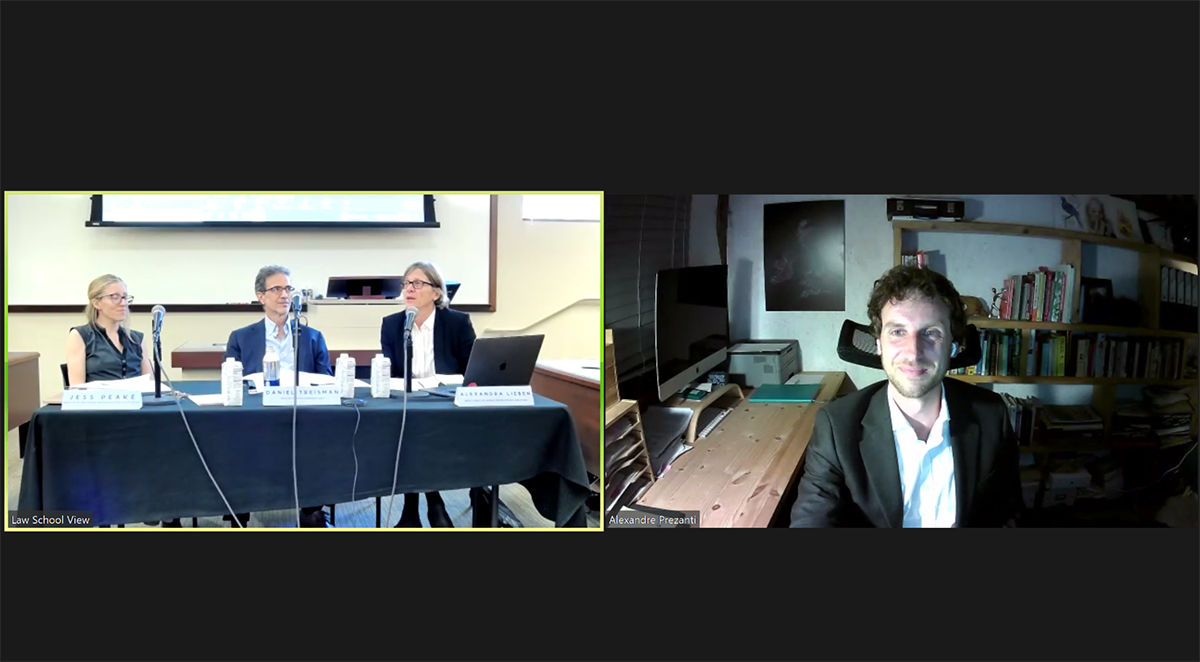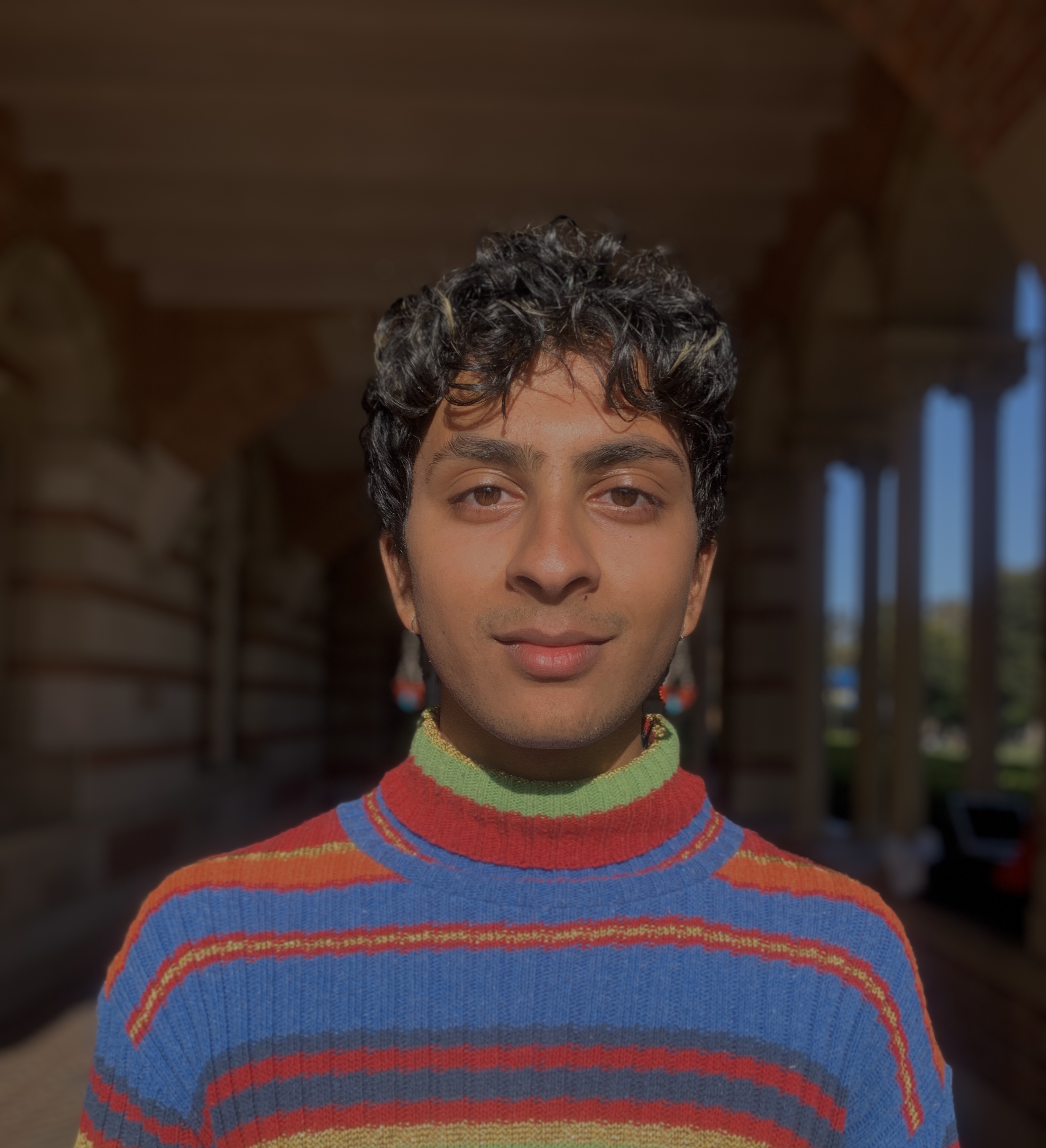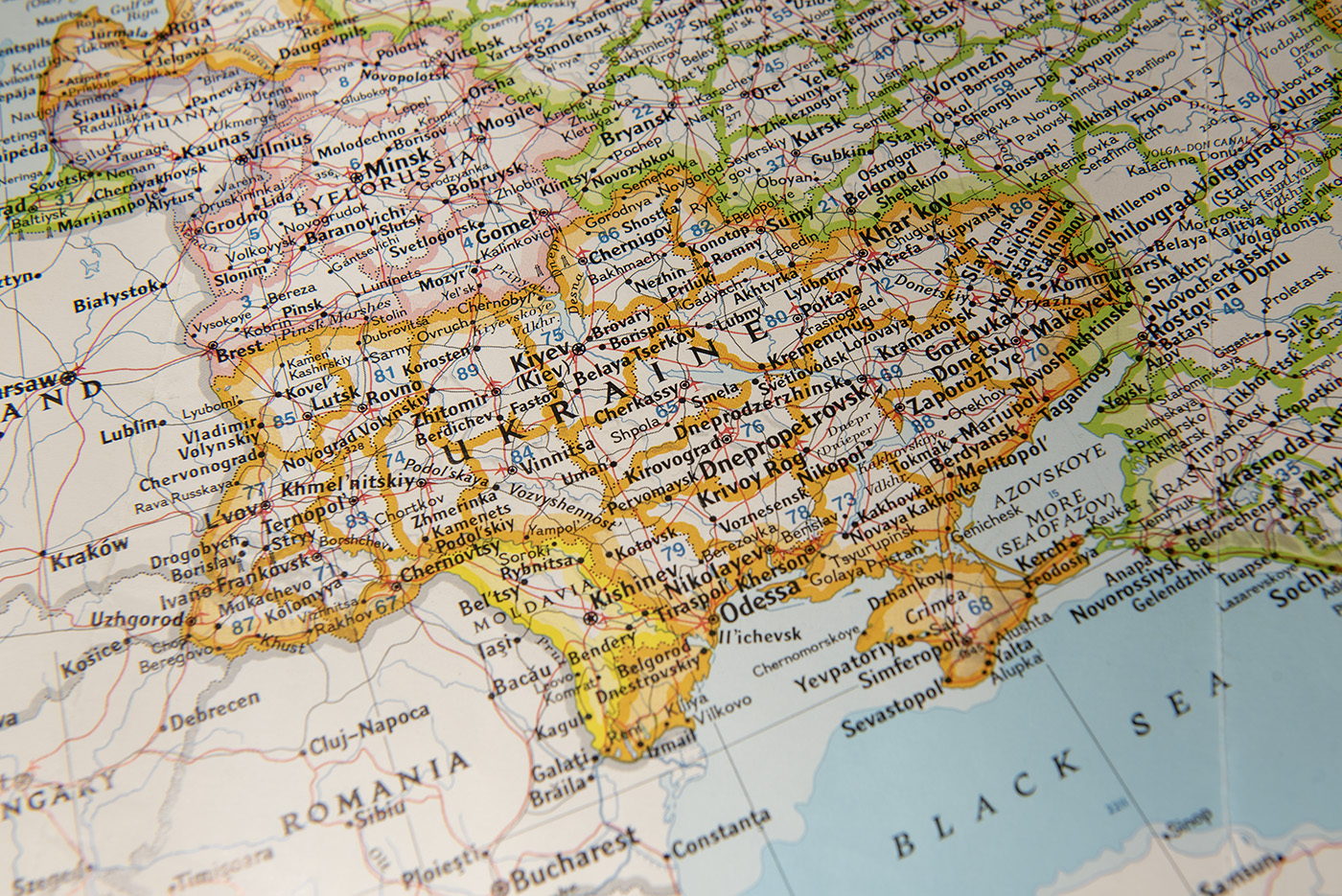UCLA Burkle Center hosts panel on Russia-Ukraine war crimes

UCLA community members and lawyers gathered for a panel (pictured) co-hosted by the UCLA Burkle Center for International Relations. (Courtesy of Shaanth Kodialam)

By Shaanth Kodialam
Oct. 21, 2022 10:31 a.m.
UCLA scholars and international lawyers discussed the Russia-Ukraine war and reports of war crimes from Russian armed forces at a hybrid webinar Wednesday.
A United Nations report from the Independent International Commission of Inquiry on Ukraine found evidence of Russian armed forces committing human rights and international humanitarian law violations as well as war crimes during the initial months of the 2022 Ukrainian invasion. Those who spoke at the panel – which was hosted in part by the UCLA Burkle Center for International Relations – noted there are different ways to hold Russia accountable, though each comes with different drawbacks.
Alexandra Lieben, deputy director of the Burkle Center, said at the panel that scholars have noticed a pattern of consistent war crimes from Russian armed forces in multiple conflicts around the world, including the Second Chechen War.
The international community has been in strong support of Ukraine, said Daniel Treisman, a professor of political science and a speaker on the panel who has been studying Russian politics and economics. South Korea and Japan have imposed strict economic sanctions on the country, and the U.N. has passed two resolutions criticizing Russia’s actions in the war, one of which is to suspend them from the U.N.’s Human Rights Council, he said.
“We’ve been witnessing pretty horrific evidence of war crimes. And there’s two obvious subsets of these. First, there’s the apparently deliberate bombing of civilians, schools, hospitals, shopping malls. … And then there’s the ground-level torture, rape, and murder of civilians,” he said. “Both of those types of atrocities have occurred in previous Russian wars.”
China and India have proclaimed neutrality in the conflict, despite buying more oil from Russia recently, Treisman said. While India abstained from the vote to suspend the country from the Human Rights Council, China voted against doing so, according to a U.N. report. Triesman added leaders from the two countries have expressed reservations about supporting Russian President Vladimir Putin but have yet to take concrete actions to put pressure on the country for their war crimes.
Jessica Peake, director of UCLA’s comparative and international law program, said at the panel that Russia has violated Article 2(4) of the U.N. Charter, which specifies that members of the U.N. should not use or threaten force against the territory or political independence of any state. She added that Russia has violated the principle of distinction, a key part of international humanitarian law requiring military forces to distinguish between civilians and combatants while allowing for some collateral damage.
Reports that the Russian military has engaged in relentless use of explosive weapons, cluster munitions, unguided rockets and airstrikes are also deeply concerning, she said.
“The fact that Russia continues to refuse to recognize it as an international armed conflict and persists in calling it a special military operation does not change the fact that this is an international armed conflict,” she said.
Peake said there are multiple methods of accountability available for the Russian government and individuals from the Russian armed forces to pursue. Some of these include the International Criminal Court, a joint investigative team with participants from several European countries and domestic charges carried out by Ukrainian officials, she said.
Peake added Ukraine has already begun carrying out domestic prosecutions, noting the successful conviction of a Russian soldier for killing an elderly Ukrainian civilian under orders from higher-ranking officials.
Alexandre Prezanti, an international lawyer with experience in humanitarian law, said at the panel he believes supporting Ukrainian officials with the prosecution of domestic charges is the best way to hold Russian armed forces accountable. However, he said Ukraine may face difficulty holding perpetrators of war crimes accountable because Russia is holding Ukrainian war prisoners hostage.
“(Ukraine is the) best place to deliver justice because not only do they have access to the POWs (prisoners of war) that may be responsible for those crimes, but they have the best access to evidence,” Prezanti said. “More importantly, I guess, is that the justice is delivered close to the victims.”



